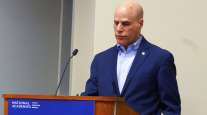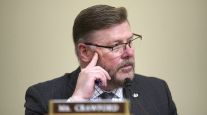Staff Reporter
Trucking Experts Tackle Parking Problems, Solutions
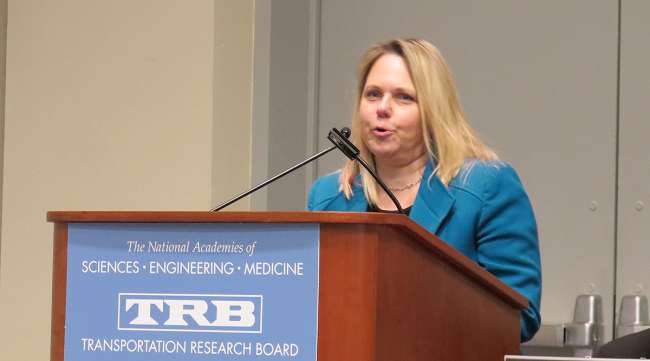
[Stay on top of transportation news: Get TTNews in your inbox.]
WASHINGTON — Trucking industry representatives at the Transportation Research Board’s annual meeting Jan. 13 broke down some of the biggest challenges — and floated a few solutions — regarding truck parking.
As freight movement over the years has increased, so has the demand for suitable parking. However, the infrastructure needed to accommodate the demand hasn’t kept up. Truck parking ranked No. 5 on the American Transportation Research Institute’s Top Industry Issues report, issued Oct. 6.
Lisa Mullings, president of Natso, the national association representing the travel plaza and truck stop industry, indicated an industry shift toward shouldering some of the costs for parking could help address the issue. Natso members provide 90% of the truck parking in the U.S., ranging from chains and independent facilities to convenience stores that have diesel pumps.
Although she acknowledged that trucking companies operate on thin profit margins, Mullings suggested that these companies should help pay for parking. She said drivers will see more parking if the industry creates incentives for carriers to start paying for it.
“[There’s a] need to have conversations with carriers about their responsibility to take care of their equipment and their drivers,” Mullings said. “We wouldn’t expect the government to pay for a hotel room for a pilot. Why would we expect the government to pay for a truck parking space? It’s a business. That is a cost of doing business.”
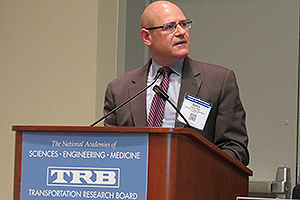
Darrin Roth by Eleanor Lamb/Transport Topics
Darrin Roth, vice president of highway policy for American Trucking Associations, said lack of available truck parking costs the industry time and productivity.
Roth cited ATRI’s research collected from drivers’ truck parking diaries indicating that 36.5% of drivers used unauthorized or undesignated parking between three and four times per week. Nearly 50% of drivers parked in unauthorized or undesignated spots at least three times a week.
“This is an issue that’s occurring all the time pretty much all over the country,” he said.
Roth also pointed out that drivers aren’t using all of their driving time because of the lack of parking, resulting in a wage loss. They have to start looking for parking earlier than they otherwise might because they anticipate having to struggle to find a safe and legal location. Roth said nearly half of drivers are shutting down at least an hour early to search for parking.
Ultimately, Roth said, the financial burden will hit consumers. He mentioned these issues will only grow in the future, as the industry is projected to move 30% more freight in 10 years than it does today.
“We’re all paying the price for this problem, whether it’s safety issues or loss of productivity,” Roth said. “This problem is not going away.”
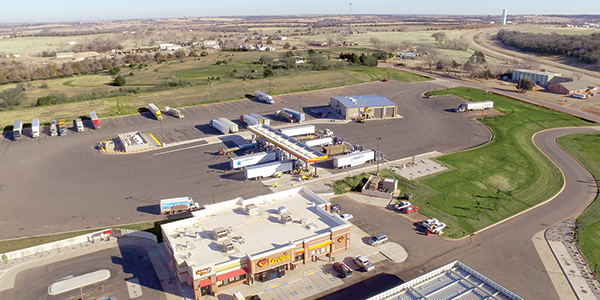
Several trucks parked at a Love’s truck stop in Guthrie, Okla. (Love's Travel Stops)
Possible solutions to opening up truck parking options include using large venues for off-hour parking and extending the time a trucker is allowed to occupy a space. Rickey Fitzgerald, freight and multimodal operations manager for the Florida Department of Transportation, said Florida’s Administrative Code was updated to allow trucks to stay in a parking area for 10 hours (rather than three hours).
RELATED: Florida DOT Surveys Stakeholders on Truck Parking Issues
The Federal Highway Administration has held nine workshops across the country to figure out the nature and location of truck parking problems. Christina Leach, freight and transportation performance management specialist at FHWA, said one of the best demographics to hear from is truck drivers. She said a trucker came to a meeting in Colorado and was able to identify areas where he wouldn’t want to stop for parking because he’d want to drive straight through.
“What we really want to do is get everyone together to talk about these issues,” Leach said. “No one organization can solve this by themselves.”
Want more news? Listen to today's daily briefing:


